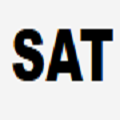Klee's measure problem (computing the volume of the union of $n$ axis-parallel boxes in $\mathbb{R}^d$) is well known to have $n^{\frac{d}{2}\pm o(1)}$-time algorithms (Overmars, Yap, SICOMP'91; Chan FOCS'13). Only recently, a conditional lower bound (without any restriction to ``combinatorial'' algorithms) could be shown for $d=3$ (K\"unnemann, FOCS'22). Can this result be extended to a tight lower bound for dimensions $d\ge 4$? In this paper, we formalize the technique of the tight lower bound for $d=3$ using a combinatorial object we call prefix covering design. We show that these designs, which are related in spirit to combinatorial designs, directly translate to conditional lower bounds for Klee's measure problem and various related problems. By devising good prefix covering designs, we give the following lower bounds for Klee's measure problem in $\mathbb{R}^d$, the depth problem for axis-parallel boxes in $\mathbb{R}^d$, the largest-volume/max-perimeter empty (anchored) box problem in $\mathbb{R}^{2d}$, and related problems: - $\Omega(n^{1.90476})$ for $d=4$, - $\Omega(n^{2.22222})$ for $d=5$, - $\Omega(n^{d/3 + 2\sqrt{d}/9-o(\sqrt{d})})$ for general $d$, assuming the 3-uniform hyperclique hypothesis. For Klee's measure problem and the depth problem, these bounds improve previous lower bounds of $\Omega(n^{1.777...}), \Omega(n^{2.0833...})$ and $\Omega(n^{d/3 + 1/3 + \Theta(1/d)})$ respectively. Our improved prefix covering designs were obtained by (1) exploiting a computer-aided search using problem-specific insights as well as SAT solvers, and (2) showing how to transform combinatorial covering designs known in the literature to strong prefix covering designs. In contrast, we show that our lower bounds are close to best possible using this proof technique.
翻译:Klee 的测量问题( 折合 $370 美元( k\\\ unmann, FOS' 22) 。 此结果能否扩展至一个更低的尺寸 $2\ 美元( d\ = 4美元)? 在本文件中, 我们用一个包含设计内容的拼图对象来正式确定 $=3 美元( Omars, Yap, SICOMP'91; Chan FOCS' 13) 。 直到最近, 才能显示一个条件性较低的约束( 不受“ compinator ” 算法限制 ) $1 3美元( K\\ unmann, FOS' 22)。 通过设计良好的前缀, 我们用 Kleele's road $( $% = R_ r_ maxxx) 。</s>




